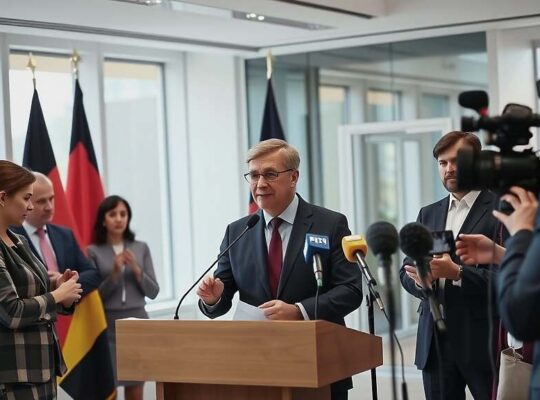A new analysis by the Institute for German Economy (IW) has revealed a potential shift in the allocation of funds from the Special Fund for Infrastructure and Climate Protection (SVIK), suggesting it may be used to cover budgetary shortfalls rather than solely for additional investment.
The analysis indicates that significant sums are being channeled through the SVIK. German Rail (Deutsche Bahn) is set to receive €18.8 billion from the fund, while planned rail investments within the federal budget are expected to decrease by €13.7 billion in 2026. Similarly, the renovation of highway bridges is slated to receive €2.5 billion from the SVIK in 2026, alongside a cut of €1.7 billion in federal highway investments.
Furthermore, broadband expansion and hospital investments are now being financed through the SVIK. Broadband expansion, for instance, will receive €2.3 billion in 2026, a notable increase from the €1.8 billion allocated within the core budget in 2024 – a category where it will no longer be found.
The IW estimates that this approach creates a budgetary flexibility of approximately €10 billion specifically within transport infrastructure. However, the full extent of this practice remains unclear due to the complex interplay between the core budget, the Special Fund and the State Treasury.
Tobias Hentze, the IW’s budget expert, expressed concerns about the government’s actions, stating, “The federal government is jeopardizing a great deal of credibility through this approach”. He added, “Instead of building new bridges, Germany is now financing the ‘mütterrente’-a benefit for mothers-using the special fund. This is a serious foul”.












